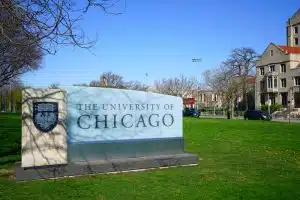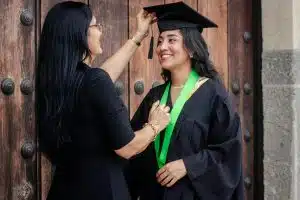Exploring Graduation Traditions Around the World
Graduation marks the end of an academic journey and the onset of a new chapter in life. It’s an event celebrated around the world, varying to an eminent degree from culture to culture. But as diverse as these traditions are, they all express the same core values – achievement, anticipation, and reverence for scholarly development. This article looks at graduation traditions from different corners of the globe, emphasizing their significance and distinctive features.
Understanding the Significance of Graduation Traditions
Understanding the significance of graduation traditions is crucial in exploring the core of these traditions. Traditions are cultural practices that are passed down from generation to generation. They embody collective wisdom, shared values, and community identity. In the context of graduation, these traditions showcase the significance of educational growth and the transition into a new phase of life.
Graduation ceremonies are not merely events to mark the completion of a course or degree. They are rich in history and symbolism, representing the culmination of years of hard work, dedication, and personal growth. The traditions associated with graduation serve as a reminder of the importance of education and its value in society.
The Role of Graduation in Various Cultures
Graduation signifies diverse meanings in different cultures. In many, it represents an attainment of knowledge and signifies maturity. It also commemorates the passage of time and the promise of a future beyond academics. In every place, though, the graduation tradition speaks to a larger narrative of cultural value placed on education and academic progression.
For example, graduation is seen as a rite of passage in some cultures, marking the transition from adolescence to adulthood. It is a time when individuals are recognized for their accomplishments and ready to take on new societal responsibilities. In other cultures, graduation is a celebration of family and community, where the achievements of the graduates are seen as a collective success.
Furthermore, graduation traditions vary in their rituals and customs. Some cultures emphasize the importance of wearing specific attire, such as caps and gowns, to symbolize the achievement and honor of completing a degree. Others incorporate religious or spiritual elements into the ceremony, highlighting the connection between education and personal growth.
Symbolism in Graduation Traditions
Common to many traditions are symbols that hold unique meanings all their own. Be it the ceremonial tassel turn or the symbolic cap throw, and these actions illustrate common threads of continuity, change, and progression that resonate in all cultures. Through such symbols, graduations become more than a personal achievement; they turn into a shared global celebration of growth and knowledge attainment.
The tassel, for instance, is a symbol often associated with graduation. It is traditionally worn on the cap and is moved from one side to the other during the ceremony. This simple act represents the transition from student to graduate, from one phase of life to the next. It symbolizes the turning of a new page and the opening of new opportunities.
Another symbol commonly seen in graduation ceremonies is the throwing of caps into the air. This joyful act signifies the release of academic burdens and the excitement of embarking on a new journey. It is a moment of celebration and unity as graduates come together to mark the end of their educational journey and the beginning of a new chapter in their lives.
In addition to these symbols, graduation traditions often include graduation speeches, music, and awards. These elements serve to inspire and motivate graduates as they reflect on their accomplishments and look ahead to the future. They reinforce the importance of education and the impact it can have on individuals and society as a whole.
Overall, graduation traditions are not just rituals to be followed but meaningful expressions of the human experience. They connect us to our past, celebrate our present achievements, and inspire us for the future. Graduation ceremonies are a testament to the power of education and the transformative journey it offers. They remind us of the importance of lifelong learning and the endless possibilities that await those who pursue knowledge.
Graduation Traditions in North America
North America possesses a rich pantheon of graduation traditions molded by a blend of historical influences and modern practices. Here, the celebration of graduating takes on a grandiosity that often extends beyond the educational institution.
As the graduation ceremony approaches, students eagerly anticipate the moment when they can don the iconic cap and gown. This tradition, deeply rooted in history, adds a touch of elegance and significance to the occasion.
The cap, or the mortarboard, signifies the square shape of a book, embodying scholarship and the pursuit of knowledge. It serves as a reminder of the countless hours spent studying and the dedication required to reach this milestone. The tassel, which hangs from the cap, represents achievement and symbolizes the transition from student to graduate.
Walking across the stage to receive a diploma is a moment that will be cherished forever. However, there are other traditions integral to North American graduations that add depth and meaning to the overall experience.
One such tradition is the exchange of class rings. These rings, adorned with the school’s emblem and the graduate’s name, serve as a lasting reminder of the years spent in pursuit of education. They represent school spirit, unity, and the bond shared among classmates. Class rings are often worn with pride, symbolizing academic accomplishment and a connection to one’s alma mater.
In addition to class rings, yearbooks hold a special place in the hearts of graduates. These books are filled with personal memories captured through photographs and heartfelt messages from friends and teachers.
A yearbook is a tangible representation of the journey taken throughout the academic years. They are a testament to the friendships formed, the lessons learned, and the growth experienced. Graduates often spend hours reading the pages, reliving the moments that shaped their educational journey.
Graduation traditions in North America are not limited to the ceremony itself. Many schools organize elaborate celebrations and events to honor the graduates. These may include formal dinners, award ceremonies, and even parades. The aim is to create an atmosphere of pride and accomplishment, where graduates can reflect on their achievements and celebrate with their loved ones.
Furthermore, commencement speeches delivered by distinguished guests or faculty members add an extra layer of inspiration to the graduation ceremony. These speeches often provide graduates with valuable life lessons, encouraging them to embrace the future with confidence and determination. They serve as a reminder that graduation is not just an end but a new beginning filled with endless possibilities.
European Graduation Customs
Drawing from a deep well of history, European graduation customs bear a particular charm. From the UK’s unique university practices to the communal celebrations of Scandinavia, these traditions are steeped in cultural significance.
The UK’s Unique University Traditions
The UK is known for its disarming graduation traditions, particularly the ceremony at the University of Oxford. Post-exam, students wear ‘subfusc’ – an ensemble of black and white attire symbolizing scholarly unity and equalization. Caps are only donned upon officially graduating, representing the student’s transition into an alumnus.
But the traditions at Oxford go beyond the attire. The ceremony itself is a grand affair, held in the prestigious Sheldonian Theatre. The graduates, accompanied by their families and friends, gather in this historic venue, creating an atmosphere of excitement and anticipation.
The ceremony begins with a procession of academics dressed in their traditional gowns, entering the theater to the sound of classical music. The air is filled with a sense of accomplishment and pride as the graduates prepare to receive their degrees.
During the ceremony, each graduate is called by name and walks across the stage to receive their degree from the university’s chancellor. This moment is often met with applause and cheers from the audience, as it signifies the culmination of years of hard work and dedication. The ceremony concludes with a speech from a distinguished guest, imparting words of wisdom and inspiration to the newly graduated students.
Graduation in Scandinavian Countries
Scandinavian countries celebrate graduation with a communal fervor. The day holds parades and singing, marking both the end of schooling and the advent of adult life. Importantly, students wear caps that date back to the 1800s, which hold a high symbolic value of matured wisdom and learning.
In Sweden, the graduation celebrations are known as “studenten.” The day begins with a procession through the streets, led by the graduates wearing their traditional white caps and overalls. The streets are lined with friends, family, and well-wishers, cheering and applauding as the graduates pass by. The atmosphere is filled with joy and pride as the community comes together to celebrate the achievements of the young graduates.
After the procession, the graduates gather for a traditional celebration or reception known as the “mottagning.” This is a time for the graduates to reflect on their educational journey and to thank their teachers and mentors for their guidance and support. It is also an opportunity for the graduates to receive gifts and well-wishes from their loved ones, symbolizing the transition into adulthood and the beginning of a new chapter in their lives.
Throughout Scandinavia, graduation is not just a personal achievement but a celebration of the entire community. It is a time to honor the hard work and dedication of the graduates, as well as the support and encouragement they have received from their families and friends.
The traditions and customs surrounding graduation in these countries serve as a reminder of the importance of education and the value of lifelong learning.
Asian Graduation Ceremonies
Echoing respective cultural norms, Asian graduation ceremonies are a blend of tradition and modern practices. From the ceremonial rituals in Japan to the family-centric celebrations in China, these graduation traditions showcase distinctive cultural themes.
The Japanese Sotsugyou
In Japan, the graduation ceremony is referred to as ‘sotsugyou’. The event is solemn and involves the reading of graduation certificates followed by speeches from selected students. Unique to Japanese tradition, it’s common to see a display of cherry blossoms, signifying the fleeting nature of school life.
During the sotsugyou ceremony, students wear traditional attire such as the hakama, a wide-legged pleated skirt for men, and the furisode, a long-sleeved kimono for women. The attire adds an elegant touch to the ceremony, symbolizing the transition from student life to adulthood.
Furthermore, the sotsugyou ceremony often includes a performance by the school’s music club or choir, showcasing the students’ talents and adding a touch of artistry to the event. The melodies of traditional Japanese instruments, such as the koto and shamisen, fill the air, creating a serene and nostalgic atmosphere.
Graduation in China: A Blend of Old and New
Graduation ceremonies in China combine traditional elements with Western influences. Regarded as a family accomplishment, the graduation focuses on collective pride and tribute to the collective effort in educational success. It is commonplace for students to take photos with their mentors, signifying respect and gratitude for their guidance.
One of the highlights of Chinese graduation ceremonies is the exchange of red envelopes, known as “hongbao,” between the graduates and their family members. These envelopes contain monetary gifts, symbolizing good luck and blessings for the graduates’ future endeavors.
In addition to the formal proceedings, Chinese graduation ceremonies often feature vibrant cultural performances, such as traditional dances and music. The rhythmic movements and colorful costumes showcase the rich cultural heritage of China, adding an element of celebration and festivity to the event.
Another unique aspect of Chinese graduation ceremonies is the presence of a graduation tree. This tree is adorned with ribbons and wishes written by the graduates, symbolizing their hopes and dreams for the future. It serves as a visual representation of their aspirations and acts as a source of inspiration for the graduating class.
Graduation Traditions in Latin America
Graduation traditions in Latin America are a reflection of the region’s emphasis on family, community, and festive celebration.
Graduations in this region are never a solo affair – they are always a family celebration. Parents, siblings, aunts, uncles, and cousins join in the festivities, showcasing the important role of family support in education and achievement. This underscores the collective joy and pride in a family member’s accomplishment.
Graduates in Latin America often add a personal touch to their graduation attire. Customizing traditional caps and gowns with meaningful decorations, they convey messages of gratitude towards their loved ones and express their individuality and personal journey in a colorful and creative way.
The world is brimming with unique ways to celebrate the significant milestone of graduating. These ceremonies recognize academic achievement and bring individuals, families, and communities together through time-honored customs.
No matter the country or culture, graduation traditions serve as poignant reminders of the power and value of education in shaping societies and crafting a brighter future. These diverse rituals highlight the universal significance of this rite of passage, emphasizing the importance of knowledge and the potential for positive change it represents.
In a realm where graduation signifies academic accomplishment and opens doors to a brighter future, it’s crucial to acknowledge that the journey continues beyond this milestone. AdmissionSight recognizes that the path to higher education is equally important, offering guidance and support to students aspiring to enter universities and colleges.
Just as graduation traditions reflect the value of education, AdmissionSight understands the significance of the admissions process in shaping individuals’ lives and is committed to helping students navigate this pivotal stage with confidence and success.








































